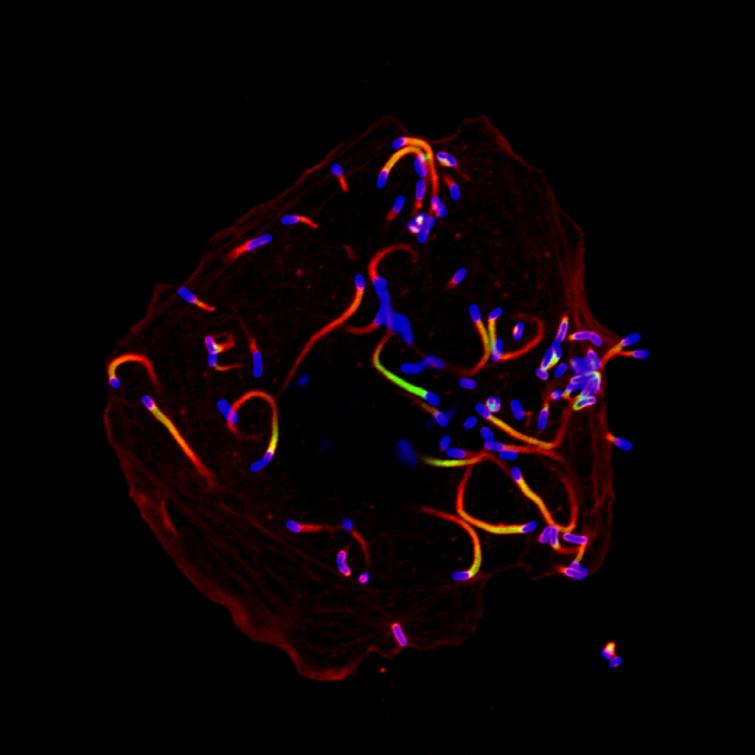
 News
News
When Listeria attacks the intestinal microbiota
Although several Listeria strains can cause listeriosis, some are particularly virulent. This is because they secrete a toxin that damages the intestinal microbiota, preventing it from serving as a barrier and promoting infection. The results of this study, carried out by Javier Pizarro-Cerdà's team in the unit led by Pascale Cossart (Institut Pasteur, INSERM, INRA), were published in the journal PNAS on May 2, 2016.
When pathogenic bacteria enter our digestive system – for example via contaminated food - they are confronted with various defenses used by the body, including the bacteria in our intestinal microbiota. However, some microbes manage to cross this protective barrier and infect the human organism. One such example is Listeria, especially the more virulent strains of these bacteria that cause listeriosis outbreaks. "For several years we have known that the genomes of these epidemic strains of Listeria contain specific pathogenicity islands - groups of genes that equip them with all the tools they need to cause disease," explains Javier Pizarro-Cerdà from the Bacteria-Cell Interactions Unit (Institut Pasteur, INSERM U604, INRA USC2020). "One of these islands enables the most dangerous strains of Listeria to produce a specific toxin known as Listeriolysin S."